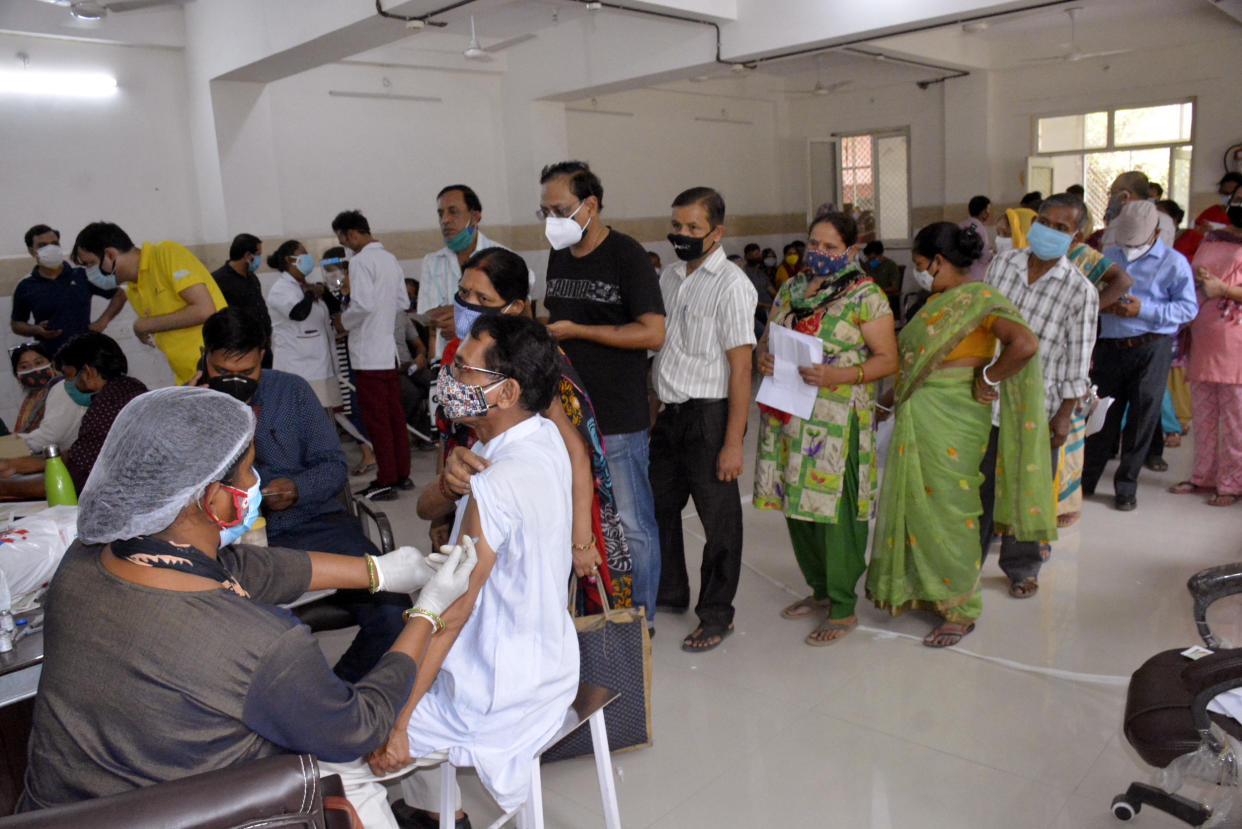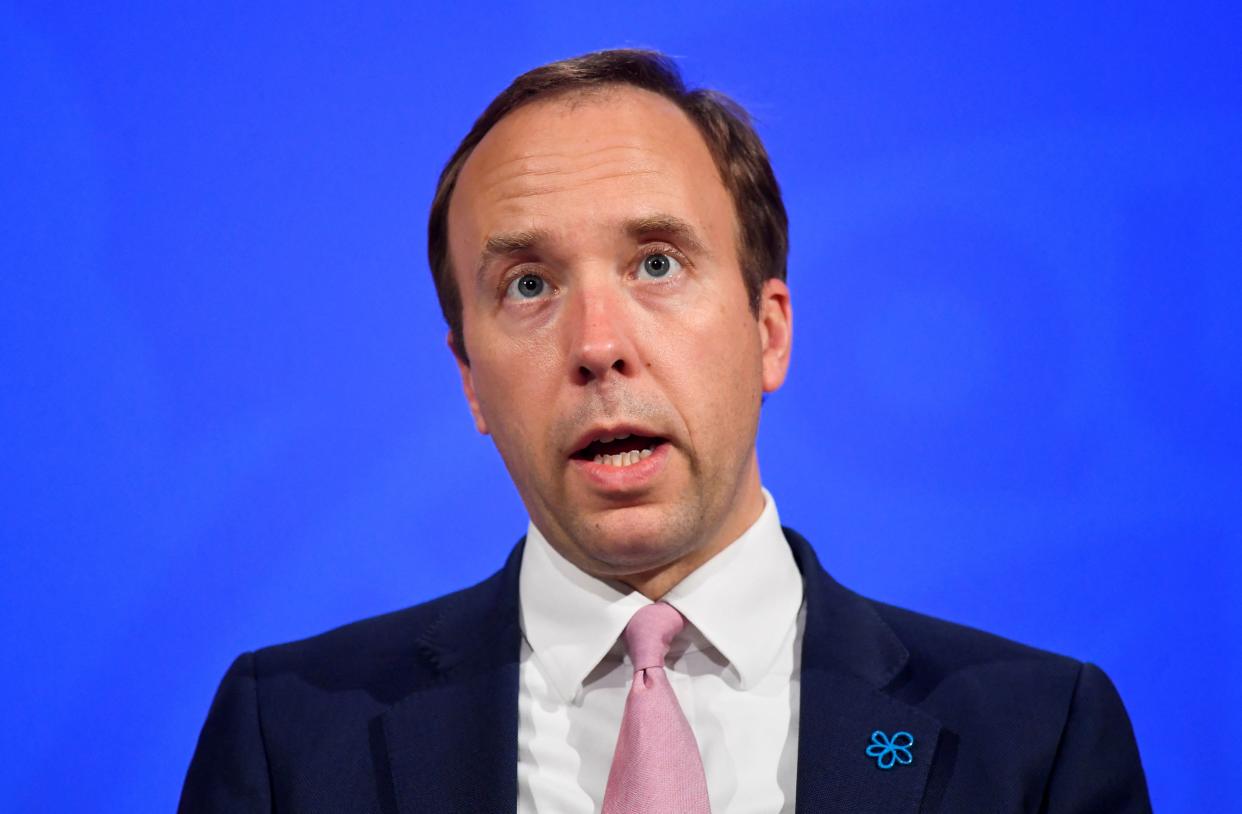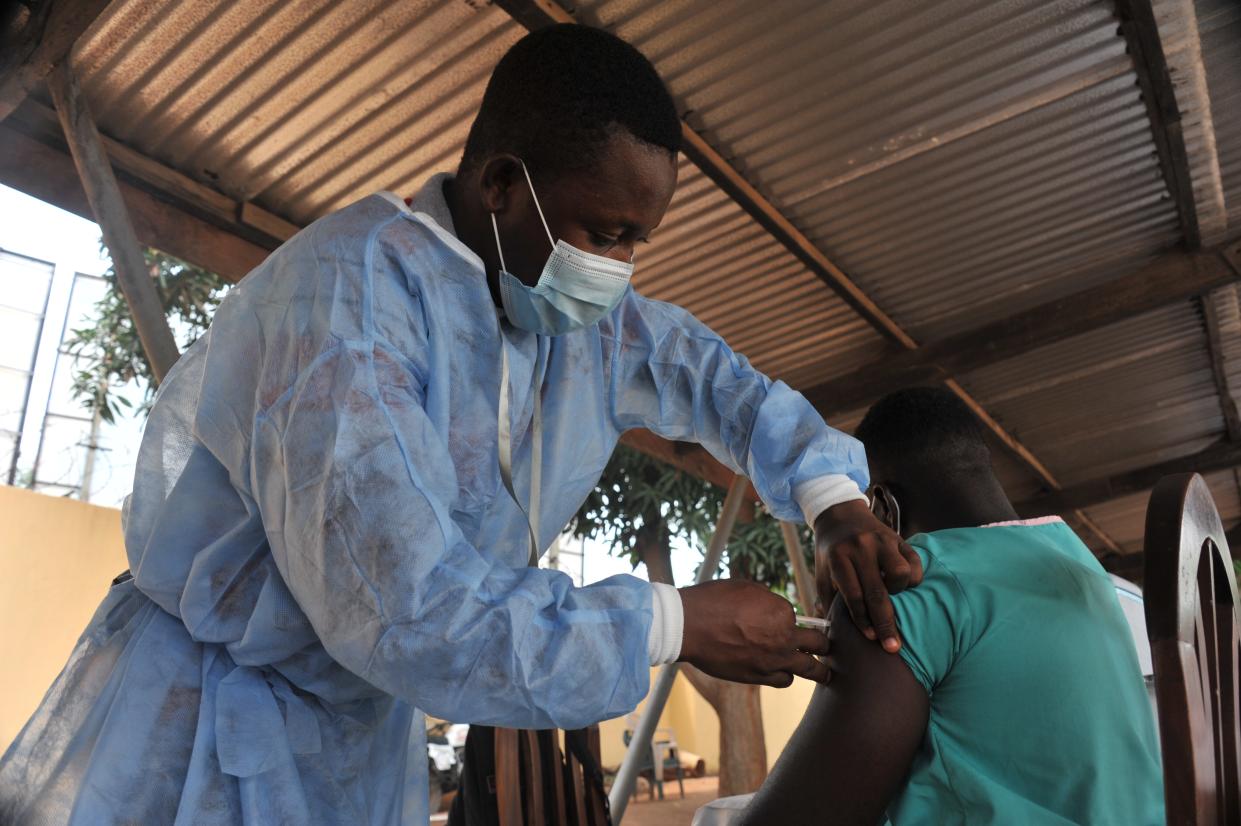UK has 'done more than any other country' to vaccinate world's poorest - 'Gift to the world'

Matt Hancock has said the UK has done more than any other country to vaccinate the world’s poorest and provided a “gift to the world” in the form of the Oxford/Astrazeneca vaccine.
Speaking at a Downing Street press conference on Wednesday, the health secretary praised the country for its role in protecting the world from coronavirus.
He said the UK had invested in the development and delivery of the Oxford/Astrazeneca vaccine, with 400 million doses administered in 160 countries so far.
Hancock added the country also invested more than £500m in COVAX, a programme to distribute COVID-19 vaccines to some of the world's poorest people.

The health secretary told the press conference: “The UK has probably done more than any other nation to help vaccinate the world's poorest.
“And that's thanks to the gift to the world of the Oxford/AstraZeneca vaccine which is available at cost, no charge for intellectual property.
Hancock added: “Two-thirds of this 400 million doses have been injected into the arms in low and middle-income countries, including for instance 170 million in India, where they've been obviously so badly affected by this virus.
“And of the 67 million doses delivered through Covax, over 65 million of them have been the Oxford/AstraZeneca vaccine.
“This vaccination programme is a vaccination programme for the world.”
The World Health Organization (WHO) has repeatedly criticised richer nations for hoarding vaccines when poorer countries were struggling to inoculate their population.
The UK, which has a population of 67 million, has deals for 517 million doses of eight different coronavirus vaccines, some of which remain under development.
Professor Andrew Pollard, director of the Oxford Vaccine Group and leader of the clinical trials for the AstraZeneca jab, said giving coronavirus jabs to young and healthy people in wealthy countries while developing countries struggle is “morally wrong”.
On Tuesday, he told the All-Party Parliamentary Group on Coronavirus: “When you look at the overall aim of a vaccination programme – it’s to stop people dying – it’s the over 50s, the healthcare workers and those with a pre-existing health condition.
“Yet there are many unvaccinated people in the world, while in wealthier countries, we are looking to vaccinate children.
“The inequity feels completely wrong morally. We have lost the line of sight as to what we are trying to do, that is to stop the pandemic everywhere.”

Last week, the UK, the US, Canada and other wealthy nations were called “selfish” for securing more COVID-19 vaccines than it needs for their population.
A report, titled How An Outbreak Became A Pandemic, said “vaccine nationalism” had created “a force to be feared and a problem to be reckoned with”.
The International Panel for Pandemic Preparedness and Response (IPPPR) report said: “In this sense vaccine nationalism is not just a selfishness to be condemned, but a force to be feared and a problem to be reckoned with.
“As of now, high-income countries such as Canada, the UK, Australia, New Zealand, and the United States and across the EU have been able to secure vaccine doses that would be enough to cover 200% and more of their populations.”
Watch: What UK government COVID-19 support is available?



